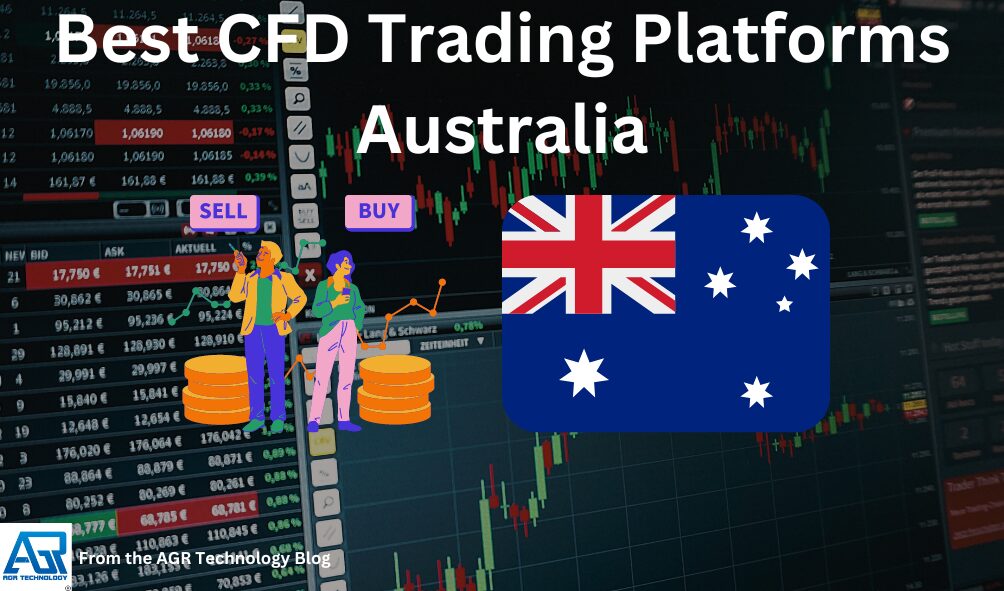Disclaimer: General information only. All kinds of investment (particularly trading CFDs, commodities, and FX) involve significant risk, including the possibility of losing more than the amount invested, as well as market volatility and liquidity hazards. Past performance does not guarantee future results. Most investors will find such operations unsuitable.
The Australian financial market is a dynamic hub, attracting investors worldwide. For those seeking to capitalise on price movements without ownership of underlying assets, Contract for Difference (CFD) trading offers a compelling avenue. But with a plethora of CFD platforms vying for your attention, selecting the right one can feel overwhelming.
Quick Takeaway:
Australia’s best CFD trading platforms feature robust security, user-friendly interfaces, extensive educational resources, and competitive pricing. This comprehensive guide will help you navigate the Australian CFD trading landscape and help you find the best CFD trading platforms in Australia and kickstart your trading journey.
What are CFDs?
CFDs (Contracts for Difference) are sophisticated financial derivatives that enable traders to speculate on price movements of various financial instruments without owning the underlying asset. These instruments include shares, indices, commodities, and currencies.
Key Characteristics of CFDs
- Derivative Nature: CFDs derive their value from an underlying asset’s price fluctuations.
- Speculation Mechanism: Traders predict whether an asset’s price will rise or fall.
- No Physical Ownership: Investors trade the contract’s price difference rather than the actual asset.
Historical Context
CFD trading emerged in the late 1970s and early 1980s as financial derivatives became more prevalent. Initially popular among professional traders, online trading platforms later expanded accessibility to retail investors.
Trading Mechanics
When trading CFDs, investors enter a contract with a broker to exchange the difference in an asset’s value between trade opening and closing points. This approach allows for potential profits from both rising and falling markets.
Best CFD trading platforms in Australia February 2026 (Comparison)
AvaTrade
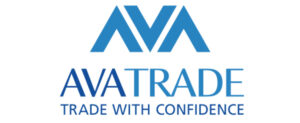
AvaTrade is a globally recognised online broker that has been in operation since 2006. It provides a wide range of trading options, including forex, commodities, cryptocurrencies, stocks, indices, and bonds. AvaTrade is known for its strong regulatory framework, with licenses in multiple jurisdictions, ensuring a secure trading environment for its clients.
AvaTrade offers a rich educational resource center and multiple trading platforms to cater to both novice and experienced traders. The broker places a strong emphasis on customer support and provides range of trading tools and features to enhance the trading experience.
Key Features:
-
Regulated in multiple jurisdictions including Australia
-
User-friendly interface
-
Full mobile trading support
-
Tons of trading platforms
-
Minimum deposit of $100
-
Extensive educational materials
Investment Options:
-
Forex
-
Commodities
-
Cryptocurrencies
-
Stocks
-
Indices
-
Bonds
-
ETFs
-
Options
-
Trading Platforms:
-
MetaTrader 4 (MT4)
-
MetaTrader 5 (MT5)
-
AvaTradeGO
-
WebTrader
-
AvaOptions
-
DupliTrade
-
ZuluTrade
Fees:
-
AvaTrade primarily charges fees through the Buy/Sell spread, which is incorporated into the quoted rates. (Source)
-
Additional fees that could apply include an Overnight Premium for holding positions beyond a certain time and an Inactivity Fee if the account remains unused for three consecutive months.
-
AvaTrade may also impose an Administration Fee on accounts that remain inactive for 12 consecutive months.
-
Australian traders can access AvaTrade’s services, which include Forex trading, indices, CFDs, and more, through the Australian-regulated platform. (Source)
-
AvaTrade does not charge commissions on trades but earns revenue through the Bid/Ask spread. (Source)
Pros:
-
Fast and simple account opening
-
Multiple advanced trading platforms
-
Comprehensive educational resources
-
Excellent customer support
- Web interface, mobile app and Metatrader compatibility
Cons:
-
Inactivity fees can be high
-
Limited research tools compared to some competitors
- Limited options for Cryptocurrencies
Website screenshot:
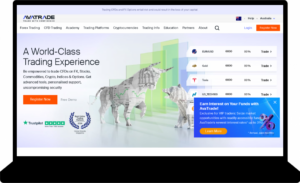
Capital.com

Looking for a platform to trade cryptocurrency and other assets with no transaction fees? Look no further than Capital.com. With over 100 cryptocurrencies supported and 2x leverage available, you can trade quickly and affordably.
Furthermore, the platform is ASIC and FCA licenced, providing further protection through a fully working PC platform and a highly rated mobile app.
And if you need assistance, the dedicated account manager and great customer support team are available. Best of all, all deposits and withdrawals are free. Join Capital.com today and trade with confidence.
Features of Capital
- Trade with confidence on Capital’s licensed and secure platform regulated by ASIC and FCA
- Access to trading with 100+ cryptocurrencies along with traditional assets including CFDs
- Explore and experiment with real assets in real-time using Capital’s fully functional demo account.
- Experience seamless and hassle-free transactions with free deposits and withdrawals via multiple payment methods, including debit/credit cards, bank transfers, and more.
- Get personalised support from a dedicated account manager available round the clock.
- Access the best trading experience on Capital’s user-friendly desktop platform and highly-rated mobile app (4.7/5 on both Apple and Google)
- Rest assured, knowing that Capital meets robust information security standards with ISO 27001 certification.
Pros
- The quick and easy registration process makes it relatively quick to get started
- Multiple convenient deposit and withdrawal options are available
- Customer funds are kept in segregated accounts, ensuring the safety and security of the fund
- Extensive collection of training materials and research tools for market analysis and study
- Multilingual support is provided in 13 different languages
- Wide selection of trading instruments to choose from
Cons
- No investment programs, such as PAMM accounts or trade copying services, are offered to clients
Website screenshot:
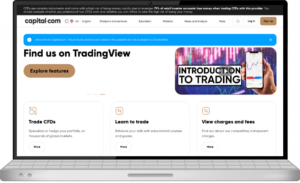
eToro
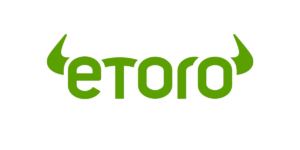
eToro is a leading social trading platform in Australia. It was founded in 2007 and has revolutionised how people trade and invest online. It combines a user-friendly interface with an extensive range of financial instruments, making it accessible for both novice and experienced traders. What sets eToro apart is its unique social trading feature, allowing Australian investors to follow and copy the trades of successful investors, fostering a community-driven approach to investing.
Key Features:
-
Social trading and copy trading
-
eToro offers access to 5,000+ different financial assets
-
Intuitive and easy-to-use platform
-
Wide range of financial instruments
-
Ready-made Smart Portfolios
-
Commission-free stock trading
-
Comprehensive educational resources
Investment Options:
-
Stocks
-
ETFs
-
Forex
-
Cryptocurrencies
-
Commodities
-
Indices
Trading Platforms:
-
eToro WebTrader
-
eToro Mobile App (iOS and Android)
Fees:
-
No commission on stock trades
-
Spreads on forex, commodities, and cryptocurrencies
-
Withdrawal fee of $5
-
Inactivity fee of $10 per month after 12 months of inactivity
Pros:
-
User-friendly platform suitable for beginner traders
-
Innovative social trading features
-
Diverse range of investment options
-
Strong community and educational support
-
Free stock trading
Cons:
-
Withdrawal and inactivity fees
-
Slow customer service
PDS Link: https://www.etoro.com/wp-content/uploads/2024/08/20240811_PDS-2.pdf
Website screenshot:
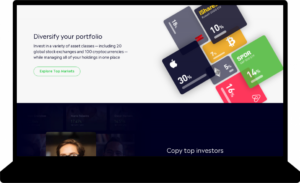
Pepperstone
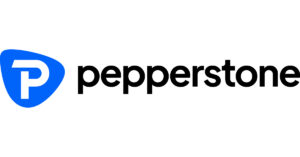
Pepperstone is a prominent online forex and CFD broker serving traders since its inception in 2010. Headquartered in Melbourne, Australia, Pepperstone has grown rapidly, earning a solid reputation for its competitive pricing, advanced trading infrastructure, and exceptional customer service. The broker is well-regulated by multiple authorities, including the FCA in the UK and ASIC in Australia, ensuring a secure trading environment.
Pepperstone is particularly known for its fast execution speeds and low spreads, which are crucial for forex traders. The broker caters to both retail and institutional clients, providing a range of trading instruments and platforms that suit various trading styles and preferences. With a strong focus on technology and customer support, Pepperstone has positioned itself as a reliable and innovative player in the online trading industry.
Key Features:
-
Wide Range of Markets: Access to CFDs across Forex, Crypto, Indices, Commodities, and Shares
-
Short Selling: Capability to short sell equities and ETFs through CFDs
-
Integration with TradingView: Direct connection to TradingView for enhanced charting and trading
-
MetaTrader Platforms: Trusted MT4 and MT5 platforms with low spreads and high-leverage options
Investment Options:
Pepperstone offers a wide variety of trading instruments, allowing traders to diversify their portfolios:
-
Forex: Major, minor, and exotic currency pairs
-
Indices: Trade on major global indices
-
Commodities: Gold, silver, oil, and more
-
Cryptocurrencies: Bitcoin, Ethereum, Litecoin, and others
-
Shares: Access to shares from major global markets
Trading Platforms:
Pepperstone provides several trading platforms to accommodate different trading needs and preferences:
-
MetaTrader 4 (MT4): A popular choice among forex traders for its user-friendly interface and advanced charting tools.
-
MetaTrader 5 (MT5): An upgraded version of MT4, offering additional features and more asset classes.
-
cTrader: Known for its intuitive interface and advanced order capabilities, cTrader is favored by algorithmic traders.
-
TradingView Integration: Offers seamless integration with TradingView for advanced charting and social trading features.
Fees:
-
Australian Share CFDs: 0.07% commission per side
-
For FX trades on a Razor account, commissions are $3.50 per lot per trade plus spread cost
-
Pepperstone’s Standard account does not charge commissions on trades, but there’s a 1 pip markup on the raw spreads
-
The brokerage charges no inactivity and account fees, and withdrawal is generally free, except for Skrill and Neteller, with a $20 fee for bank transfers for non-EU and Australian clients
Pros
-
Tight spreads and low commissions.
-
$0 Minimum Deposit
-
1200+ Traded Assets
-
No Commission on Standard Account
-
No withdrawal fee
Cons
-
MetaTrader platform is basic
-
Live chat is a bit slow
Website screenshot:
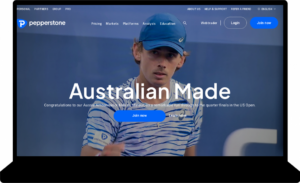
IC Markets
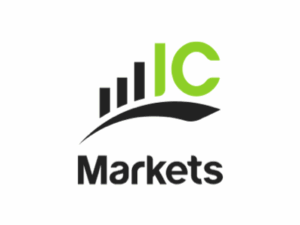
IC Markets is a leading global forex and CFD broker known for its competitive trading conditions and exceptional execution speeds. Established in 2007 in Australia, IC Markets has grown to become a preferred choice for traders seeking reliable and transparent trading services. It is regulated by ASIC, CySEC, and FSA Seychelles, ensuring a level of investor protection and compliance with local laws.
The broker offers access to a wide range of financial instruments, including forex, commodities, indices, bonds, and cryptocurrencies, catering to both retail and institutional clients. With its commitment to providing top-notch trading platforms and superior customer support, IC Markets has built a strong reputation in the industry.
Key Features:
-
Free demo accounts available
-
Cutting-edge trading tools provided
-
Multiple trading platforms supported
-
Competitive pricing and execution
-
Comprehensive regulation coverage
Investment Options:
-
Forex
-
Commodities
-
Indices
-
Bonds
-
Cryptocurrencies
-
Stocks (CFDs)
Trading Platforms:
-
MetaTrader 4 (MT4)
-
MetaTrader 5 (MT5)
-
cTrader
-
WebTrader and mobile apps
Fees:
-
IC Markets offers different account types including Raw Spread and Standard Accounts. Raw Spread accounts have a commission of $3.50 per lot per trade plus spread cost, while Standard accounts have spread markups of 0.8 pips without any commission.
-
Trading fees with IC Markets are generally low, especially for forex and CFD trading.
-
There is no inactivity fee charged by IC Markets, making it advantageous for traders who might leave their accounts idle for periods.
-
IC Markets provides leverage up to 1:30 for retail clients and up to 1:500 for professional clients, varying based on the instrument traded.
Pros:
-
Low forex fees
-
Little trading costs
-
Fast and easy account opening
-
Free deposit and withdrawal
-
Standard and raw spread accounts
Cons:
-
Limited product selection
-
No guaranteed stop-loss orders
-
Some educational resources may be basic for advanced traders
Website screenshot:
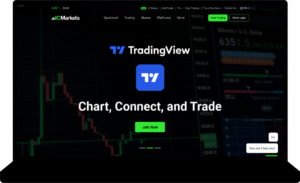
Eightcap
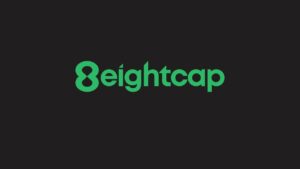
Eightcap is a strong contender if low fees are your primary concern when selecting a forex broker. It boasts the lowest forex fees among Australia-based brokers, offers free withdrawals and doesn’t charge an inactivity fee.
Founded in Melbourne in 2009, Eightcap offers seamless trading with advanced technology, strong security, and excellent support. Account opening is quick and easy, with a reasonable $100 minimum deposit. Despite a limited CFD selection and basic research, education, and customer support services, Eightcap shines with its extensive range of crypto products. Additionally, Eightcap supports the widely used MetaTrader platforms, aligning with industry standards.
Key Features:
-
Free withdrawals
-
$100 minimum deposit
-
Wide range of crypto products
-
Supports MetaTrader platforms
-
Strong security measures
-
Multiple account types and funding options
Investment Options:
-
Forex
-
Indices
-
Commodities
-
Cryptocurrencies
-
Shares
Trading Platforms:
-
MetaTrader 4 (MT4)
-
MetaTrader 5 (MT5)
-
WebTrader
-
Mobile trading apps
Fees:
-
The Standard Account offers variable spreads, averaging at 1 pip on the EUR/USD, while the Raw Spread Account provides competitive spreads of 0.1 pips (EUR/USD). Both accounts have a minimum deposit of 100 AUD.
-
Eightcap offers low trading fees, with commissions of $3.50 per lot per trade and average spreads ranging from 0.1 to 0.2 pips during peak trading hours
-
The broker does not charge inactivity fees, making it suitable for occasional traders
-
There are no fees for deposits or withdrawals, but international wire transfers may incur additional charges from the bank
Pros:
-
Low forex fees
-
Quick account opening
-
No inactivity fee
-
Regulated by ASIC and FCA
-
Wide range of tradable assets
-
High-quality customer support
Cons:
-
Limited research tools
-
No proprietary trading platform
-
Restricted availability in some countries
Website screenshot:
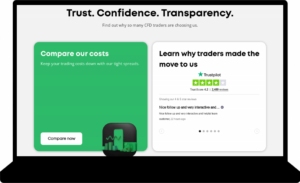
Saxo Bank
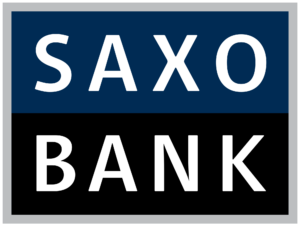
Saxo Bank, founded in 1992, is a Danish investment bank specialising in online trading and investment. It has established itself as a major player in the industry, providing a comprehensive suite of financial services to retail investors and institutional clients worldwide. Saxo Bank is renowned for its extensive range of investment options, sophisticated trading platforms, and cutting-edge technology, making it an excellent choice for serious traders and investors.
Saxo Bank offers a wide array of asset classes, including forex, stocks, bonds, ETFs, options, futures, and more. The bank prides itself on its transparency and robust regulatory framework, holding licenses in multiple jurisdictions. Its user-friendly platforms, combined with powerful trading tools and insightful research, cater to both novice and experienced traders. Furthermore, Saxo Bank emphasizes security and reliability, ensuring that client funds and data are well-protected.
Key Features:
-
Access to over 50,000 financial instruments across various asset classes
-
Highly customisable trading platform
-
Offers SaxoTraderGO and SaxoTraderPRO for comprehensive trading solutions
-
In-depth market analysis, research tools, and expert insights.
-
Extensive library of educational materials, webinars, and tutorials
-
Customer support available in multiple languages
Investment Options:
-
Forex
-
Stocks
-
Bonds
-
ETFs
-
Options
-
Futures
-
Commodities
-
Cryptocurrencies
-
Mutual Funds
Trading Platforms:
-
SaxoTraderGO: An intuitive, multi-asset trading platform suitable for all levels of traders.
-
SaxoTraderPRO: A professional-grade platform with advanced tools for serious traders and institutional clients.
-
Mobile Trading: Comprehensive mobile app for trading on-the-go with full platform functionality.
Fees:
- Saxo Bank offers competitive pricing for trading ASX and U.S. stocks and ETFs, with minimum commissions starting at AUD 5 per trade or a basis point of the investment value (source).
- Trading costs for U.S. equities can be as low as USD 1, UK equities for as little as GBP 3, and local ASX for as little as AUD 3 after recent fee reductions (source).
- Custody fees apply to international stocks, ETFs, ETCs, and bonds at an annual rate of 0.12% for the Classic and Platinum tiers, and 0.06% for VIP tier.
- Saxo does not charge fees for using its trading platforms, including SaxoTraderGO, SaxoInvestor, or SaxoTraderPRO (source).
- There are no platform fees, inactivity fees, or FX fees on each trade, and other fees apply to optional services such as algorithmic orders and market data.
- VAT (within the EU)
Pros:
-
No platform fees
-
No inactivity fees
-
No FX fees on each trade
-
Min. trade from AUD 50
-
Broad product portfolio
-
Interest paid on uninvested cash
-
Strong regulatory oversight
Cons:
-
High minimum deposit requirements
-
Inactivity fees may apply
-
Complex fee structure for some services
-
Limited customer support hours for some regions
Website screenshot:
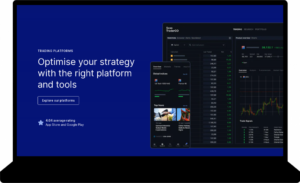
CMC Markets
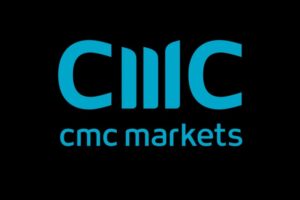
CMC Markets is a prominent online trading platform in Australia, known for its extensive range of financial products and cutting-edge trading technology. Established in 1989, CMC Markets has become a global leader, providing Australian traders with access to over 10,000 financial instruments across various asset classes. The company’s dedication to innovation and customer satisfaction has earned it a strong reputation within the industry.
Key Features:
-
CMC Markets offers various charting tools
-
1-Click Trading
-
CMC Markets provides various account specifications
-
Powerful trading tools
-
Wide range of tradable instruments
Investment Options:
-
Forex
-
Indices
-
Commodities
-
Shares
-
Treasuries
-
Cryptocurrencies
-
ETFs
Trading Platforms:
-
Next Generation
-
MetaTrader 4 (MT4)
-
Mobile Trading Apps
Fees:
-
In Australia, CMC Markets charges a commission of 0.10% for Share CFD trading with a minimum commission charge of AUD 7.00.
-
The commission for US share CFDs on the CMC Markets platform is 2 US cents per share, subject to a minimum commission charge of $10.
Pros
-
Competitive forex fees
-
User-friendly web and mobile platforms
-
Comprehensive research and education resources
Cons
-
Expensive stock CFD trading
-
Only offers CFD trading
-
Limited customer support hours (24/5)
Website screenshot:
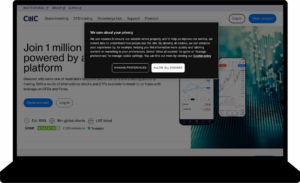
IG

IG is a leading online trading platform serving the Australian market since its establishment in 1974. Renowned for its longevity and reliability, IG offers a comprehensive suite of investment opportunities spanning various financial instruments. With a commitment to user-friendly interfaces and cutting-edge technology, IG empowers traders of all levels to navigate global markets confidently.
Key Features:
-
Intuitive trading platforms
-
Demo account available
-
Extensive range of tradable assets
-
Advanced charting tools and market analysis
-
IG Markets offers no minimum deposit requirements for opening an account
Investment Options:
-
Forex, Shares, Indices, Commodities
-
Cryptocurrencies, Options, ETFs
-
Trading Platforms:
-
IG Trading Platform, MetaTrader 4 (MT4)
-
ProRealTime, L2 Dealer
Fees:
-
IG CFD trading fees in Australia are commission-based, with a minimum charge of AUD7 per side.
-
The commission rate for Australian shares is 0.08%.
-
Other charges, such as overnight funding, guaranteed stop premiums, and extra services, may also apply.
-
Opening an account with IG is free, but there may be a monthly fee of A$18 if the account is not used for trading for two years or more.
-
Additional fees may apply for services like Direct Market Access (DMA), live price data feeds, and ProRealTime Charts.
Pros
-
Regulated activities with compensation funds
-
No minimum deposit for international division accounts
-
Leverage for trading currencies and CFDs
-
Diverse range of trading assets and markets
-
Fee rebates for new and active clients
-
Floating spreads starting from 0.6 pips for retail Forex traders
-
Bonuses for new clients and partnership programs
Cons
-
Account rejection for low capital or trading knowledge
-
No e-wallet, electronic, or crypto transactions
-
Trading conditions vary by country
Website screenshot:
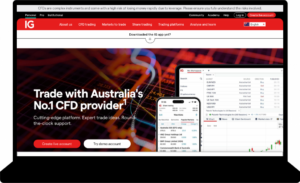
Key Considerations for Platform Selection
- Regulatory Compliance: Verify ASIC regulation
- Market Coverage: Assess available CFD markets
- Platform Usability: Compare interface and tools
- Fee Structure: Analyze spreads and transaction costs
- Customer Support: Check responsive service channels
Risk Management Recommendations
Australian traders must implement robust risk management strategies when trading CFDs. Understanding leverage implications, monitoring market volatility, and setting strict stop-loss parameters remain critical for sustainable trading performance.
Some of the best platforms and applications according to Reddit.com users
Here are some curated opinions from the popular discussion platform Reddit around popular options you may want to consider:
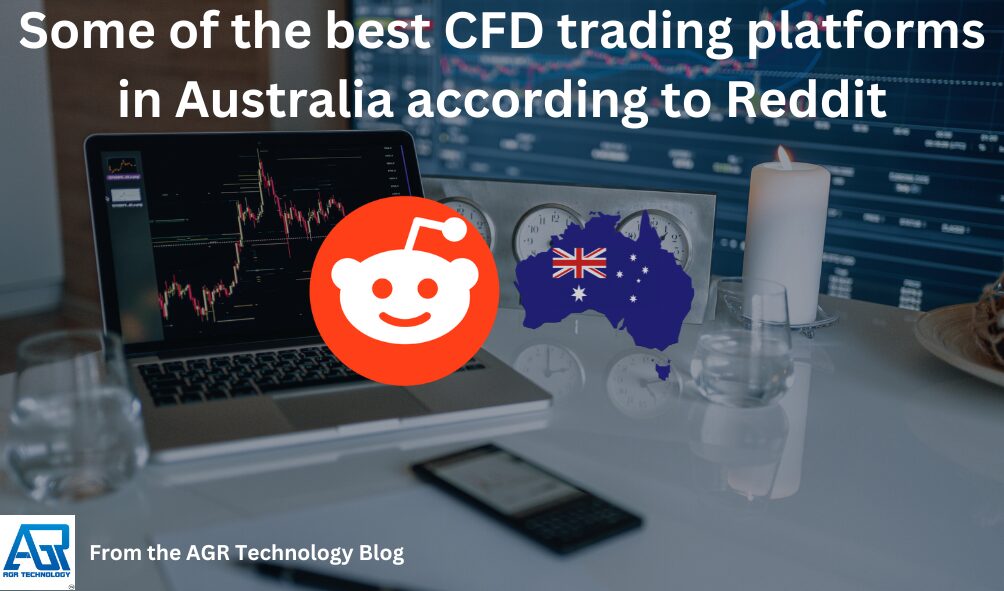
IBKR (Interactive Brokers) is best for options and stocks probably. We don’t have anything similar tp robinhood with fancy graphs and constant outages.
(Paraphrased)
Stake, a new trading platform based in Melbourne, provides free stocks after your initial deposit. I believe they offer $0 brokerage fees and exclusively trade on the American market. If you’re interested, it might be worth checking out.
(Paraphrased)
I would suggest looking into either CMC markets or Stake. I personally utilise Stake, which charges a flat $3 investing fee and no sale fee. It offers a Wall Street option, but I would check into an ETF like NDQ or GEAR for international or tech assets that contain Nvidia.
(Paraphrased)
To invest overseas, I would suggest utilising US-based brokers like IBKR or TastyTrade as opposed to CMC Markets or Stake. It is important to study the fine print regarding their FX, transactions, withdrawals, and other terms. Stake may appear cheaper since it can be paid in alternative ways. It is also necessary to analyse the CHESS and CFD choices, as well as their expenses. Also, examine the availability of trading instruments such as FX, options, and futures. Different brokers have varying cost structures and availability. Personally, I utilise IBKR, transfer funds, and convert AUD <-> USD with Wise. I have previously used TastyTrade which is also good.
(Paraphrased)
NABTrade and Stake. NABTrade is quite comprehensive for free, but with significant broker costs. The STAKE-free version is really basic but has a very low broker cost. This allows me to dollar cost average stock, which is not possible with NABTrade’s hefty costs.
(Paraphrased)
Conclusion
In conclusion, choosing the best CFD trading platform in Australia comes down to your individual trading needs and preferences. Whether you’re looking for competitive fees, advanced trading tools, or a user-friendly interface, platforms like AvaTrade and Capital stand out as top contenders and are well known brands with a strong reputation in the industry. Each offers unique features that cater to different trading styles and experience levels, ensuring that you can find a platform that suits your financial goals and trading strategies. Always remember to do your research and consider factors such as regulation, customer support, and educational resources before making your decision and only invest money your comfortable with as you enter the exciting arena of trading.
Key Takeaways
- Diverse CFD Trading Platforms Available: Australian traders have multiple sophisticated CFD trading platforms like Vantage, Pepperstone, and eToro, offering comprehensive market access across forex, stocks, commodities, and cryptocurrencies.
- Regulatory Compliance is Critical: When selecting a CFD trading platform, prioritize ASIC-regulated brokers that ensure investor protection, transparent trading conditions, and adherence to Australian financial standards.
- Risk Management is Essential: CFD trading involves high-risk financial instruments with potential for significant gains and losses, requiring traders to implement strict risk management strategies like setting stop-loss orders and understanding leverage implications.
- Platform Selection Factors: Key considerations include minimum deposit requirements, trading platform usability, market coverage, fee structures, available financial instruments, and quality of customer support.
- Educational Resources Matter: Top CFD trading platforms provide comprehensive educational materials, demo accounts, and market analysis tools to help traders develop skills and make informed investment decisions.
- Technology Drives Trading Experience: Modern CFD platforms offer advanced features like mobile compatibility, multiple trading interfaces (MT4/MT5), real-time charting, and social trading options to enhance user experience and trading flexibility.
Frequently Asked Questions
What are CFDs?
CFDs (Contracts for Difference) are sophisticated financial derivatives that allow traders to speculate on price movements of financial instruments without owning the underlying assets. Traders enter a contract with a broker to exchange the price difference between trade opening and closing points, enabling potential profits in both rising and falling markets.
Is CFD trading legal in Australia?
CFD trading is completely legal in Australia and regulated by the Australian Securities and Investments Commission (ASIC). Licensed platforms like Vantage, Pepperstone, and Plus500 offer compliant CFD trading services. However, traders must understand the high-risk nature of these financial instruments and meet specific regulatory requirements.
How risky are CFD trades?
CFD trading involves significant financial risk due to high leverage, potential for substantial losses, and market volatility. Traders can lose more than their initial investment if markets move against their positions. Successful CFD trading requires comprehensive market knowledge, robust risk management strategies, strict stop-loss parameters, and a thorough understanding of market dynamics.
Which CFD platform is best for Australian traders?
Top CFD platforms for Australian traders include Vantage (best overall), Pepperstone (most flexible), Plus500 (most user-friendly), eToro (social trading), and AvaTrade (comprehensive global regulation). The best platform depends on individual trading goals, risk tolerance, preferred financial instruments, and specific platform features.
Can beginners trade CFDs?
While CFDs are technically accessible to beginners, they are complex financial instruments best suited for experienced traders with high-risk tolerance. Beginners should first invest significant time in financial education, practice with demo accounts, understand market mechanics, develop risk management skills, and start with minimal investments.
What assets can I trade with CFDs?
CFD trading platforms offer diverse asset classes including forex, stocks, commodities, indices, cryptocurrencies, bonds, and ETFs. Most Australian platforms like AvaTrade, Capital.com, and Pepperstone provide access to hundreds of global financial instruments across multiple markets, enabling traders to diversify their investment portfolios.
How much money do I need to start CFD trading?
Minimum deposit requirements vary by platform, typically ranging from $100 to $500. Platforms like AvaTrade and Pepperstone offer low entry barriers with minimum deposits around $100-$200. However, prudent traders should start with more capital to manage potential losses and implement effective risk management strategies.
Are CFD profits taxable in Australia?
CFD trading profits are generally considered taxable income in Australia. Traders must report capital gains and losses on their annual tax returns. The Australian Taxation Office treats CFD profits as part of assessable income, with tax rates depending on individual circumstances, trading frequency, and overall financial situation. For specific details its worth talking to an accountant or trusted financial advisor for help with your specific requirements.
What are the main CFD trading costs?
Primary CFD trading costs include spreads, commissions, overnight financing charges, and potential inactivity fees. Spreads represent the difference between buying and selling prices, while overnight fees apply to positions held beyond daily trading hours. Platforms like Pepperstone and Vantage offer competitive fee structures with transparent pricing.
How can I minimize CFD trading risks?
Minimize CFD trading risks by implementing strict stop-loss orders, diversifying your portfolio, using minimal leverage, continuously educating yourself, practicing with demo accounts, maintaining disciplined trading strategies, monitoring market conditions, and never investing more than you can afford to lose.
Factors we took into consideration when creating this article:
- We developed criteria for selecting exchanges to evaluate, such as reputation, trading volume, user base, regulatory compliance, and the number of assets available to trade, as well as their websites to confirm they had licenses and compliance to operate in Australia, as well as other things like KYC protocols.
- Examined each platform’s security features, such as anti-phishing codes and 2FA codes, as well as its overall reputation for handling cyber security in accordance with industry best practices.
- Checked each platform for user-friendly design interfaces to ensure platforms are simple for newcomers to grasp.
- We gathered data on each exchange by visiting their respective website, reading user reviews, and checking for recent news or events pertaining to the platform.
Why trust AGR Technology
Alessio Rigoli launched AGR Technology in 2013 with the intention of focusing on YouTube and blogging on technology issues such as Android, Cyber Security, Blockchain, and EdTech. Since then, the business has grown to cover services such as website creation, hosting, software development, and digital marketing. AGR Technology helps clients in a variety of industries by delivering creative and high-quality technology solutions to assist them in growing.
Disclaimer: This material does not constitute an endorsement of futures, stocks, ETFs, CFDs, options, or any particular company, service, or offering. It is not intended to be used as investment advice or to make any recommendations. Futures, equities, ETFs, and options trading include a high risk of loss and are therefore not suitable for all investors. Trading CFDs and forex on leverage carries a larger chance of losing money quickly. Past performance is not indicative of future results. Before making any deals, consider your specific situation and get personal guidance. Visit the provider’s website to see the Product Disclosure Statement (PDS) and Target Market Determination (TMD) for the product and consider talking to a financial professional.
Source(s) cited / Bibliography:
Search Results [Online]. Organisations and Business Names. Available at: https://connectonline.asic.gov.au/RegistrySearch/faces/landing/panelSearch.jspx?searchType=OrgAndBusNm&searchText=143340907 (Accessed: 6 September 2024).
https://www.financemagnates.com/forex/saxo-reveals-fee-cuts-to-foster-accessibility-in-us-and-australian-markets/
“Avatrade” Accessed September 6, 2024. https://www.avatrade.com.au/about-avatrade/why-avatrade/regulation/asic-regulatory-guide-227.
[Online]. Available at: https://www.reddit.com/r/ausstocks/comments/g9hkwd/any_good_cfd_trading_platform_like_webull_or/ (Accessed: 8 September 2024).
[Online]. Available at: https://www.reddit.com/r/fiaustralia/comments/1aot3oy/what_broker_platform_is_everyone_using/ (Accessed: 8 September 2024).
Bio, Full. “Contract for Differences (CFD): Overview and Examples” 18 Aug. 2024, www.investopedia.com/articles/stocks/09/trade-a-cfd.asp. Accessed 8 Sept. 2024.
“The future of trading” Capital.com, capital.com/capital-com-gains-iso-certification-for-its-information-security-management-system. Accessed 8 Sept. 2024.
“Etoro Official Website”, [Online]. Available: https://www.etoro.com/trading/platforms/. [Accessed: 8-Sept.-2024].
Help Centre, IC Markets Global https://www.icmarkets.com/global/en/help-resources/help-centre.
Team, DailyForex.com. “Pepperstone Fees Explained [year]” DailyForex, 12 Dec. 2023, www.dailyforex.com/forex-brokers/pepperstone-review/fees. Accessed 6 Sept. 2024.
(n.d.). Just a moment…. https://brokerchooser.com/broker-reviews/pepperstone-review/pepperstone-fees
“Microsoft Word – ASIC CP 322_Pepperstone submission_Final version” 1 Oct. 2019, download.asic.gov.au/media/5643362/download.asic.gov.au/media/5643362/cp322-submission-pepperstone.pdf. Accessed 6 Sept. 2024.
“Is Pepperstone licensed and regulated – FAQ” Pepperstone, pepperstone.com/en-au/support/is-pepperstone-licensed-and-regulated/. Accessed 5 Sept. 2024.
“Pepperstone_CP325submission” 17 Mar. 2020, download.asic.gov.au/media/5834049/download.asic.gov.au/media/5834049/cp325-submission-pepperstone_redacted.pdf. Accessed 5 Sept. 2024.
“Short Selling: Everything You Need to Know” Pepperstone, pepperstone.com/en/education/short-selling/. Accessed 5 Sept. 2024.
QR Code of this page for mobile users:
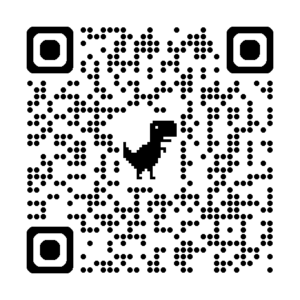

Alessio Rigoli is the founder of AGR Technology and got his start working in the IT space originally in Education and then in the private sector helping businesses in various industries. Alessio maintains the blog and is interested in a number of different topics emerging and current such as Digital marketing, Software development, Cryptocurrency/Blockchain, Cyber security, Linux and more.
Alessio Rigoli, AGR Technology
![logo-new-23[1] logo-new-23[1]](https://cdn-ihdfn.nitrocdn.com/eZVJvoSTyVixkEUySRKiaseNtUlmgCyu/assets/images/optimized/rev-b7ced37/agrtech.com.au/wp-content/uploads/elementor/thumbs/logo-new-231-qad2sqbr9f0wlvza81xod18hkirbk9apc0elfhpco4.png)
